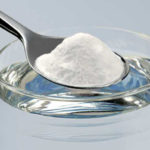Kiwi fruit has a sweet, refreshing, and slightly sour taste. It provides a significant amount of vitamin C, vitamin E, folic acid, as well as essential minerals such as calcium, chromium, copper, iron, zinc, and magnesium. It also contains polyphenols. Currently, kiwi is not grown in Vietnam and needs to be imported from abroad, which makes it quite expensive.
Many Vietnamese people tend to peel off the skin of kiwi before eating, and this is a mistake.
Why should you eat the skin of a kiwi?
If you peel the skin of a kiwi, you are wasting a lot of nutrients and the amazing benefits it has on your health. Here are some benefits of eating the skin of a kiwi:
Good for the heart
According to Medicinenet, the flavonoid antioxidant that is abundant in the skin of kiwi helps protect cells. Epidemiological studies have shown that eating the skin of kiwi can reduce the risk of heart disease and heart attacks.
The high fiber content in the skin of kiwi can reduce the risk of cardiovascular disease, cancer, and diabetes. That’s why you should eat the skin of a kiwi.
Prevents constipation and colon cancer
The fiber in the skin of kiwi stimulates the intestine, speeding up the passage of food and preventing constipation. Fiber also helps remove harmful waste from the digestive tract, which many experts believe can prevent colon cancer. Soluble fiber helps retain water in the digestive system and provides comfort for this organ system.
In addition, the enzyme Actinidin in the skin of kiwi helps break down protein in food, which is beneficial for digestion.
Balances gut bacteria
The fiber in the skin of kiwi helps promote the growth of beneficial bacteria and maintain a balance between good and bad bacteria. That’s why when you eat a kiwi, you should eat the skin too.

Why should you eat the skin of a kiwi? Because you will receive valuable nutrients from it. (Image: Unplash)
Anti-aging properties
The skin of kiwi contains phenolics, which are powerful antioxidants that stimulate the immune system. It can protect humans from the effects of stress, environmental pollution, and sunlight. Kiwi fruit is rich in vitamins C and E, which are beneficial for the immune system and skin health.
The skin of kiwi also contains a series of antioxidants that slow down the aging process of cells and help prevent diseases such as cancer. That’s one of the reasons why you should eat the skin of a kiwi.
Beneficial for pregnant women
Folate is necessary for the formation of nerve cells and red blood cells, so pregnant women need a significant amount of it. The skin of kiwi contains more folate than the flesh, which can be helpful for pregnant women who have a low-calorie diet.
Notes when eating the skin of a kiwi
Although the skin of kiwi is rich in valuable nutrients, you should also be aware of some issues that may arise:
– Nausea and diarrhea if you eat too much: According to Medicinenet, the skin of kiwi contains actinidin, a substance that can cause diarrhea and vomiting if consumed in large amounts. Some people may be allergic to this substance and experience irritation in the mouth, lips, or roof of the mouth immediately after eating. Children may experience more severe reactions such as acid reflux, rashes, difficulty breathing, etc.
Therefore, if you have never eaten the skin of a kiwi before, you should be cautious and try a small amount first to see how your body reacts. Additionally, if you eat too many kiwis, you should peel the skin off.
– The skin of kiwi may not be clean: You need to wash kiwi thoroughly because the skin can contain pesticides. Even if the kiwi you eat is organically grown, it can still accumulate dirt and needs to be cleaned.
– High content of calcium oxalate: Raphide, a natural calcium oxalate crystal in the skin of kiwi, can scratch the oral mucosa. People who have had calcium oxalate stones in their kidneys should avoid eating the skin of kiwi.
How to clean the skin of a kiwi
The skin of kiwi has many fuzz, but they are soft and fragile, so it is quite easy to clean. You just need to soak the kiwi in diluted vinegar for about 1 minute, then gently scrub the surface with a clean sponge to remove all the fuzz.
With this cleaning method, the skin of kiwi will become soft and easier to eat, without causing discomfort when chewing or swallowing.
Source: VTC news






































